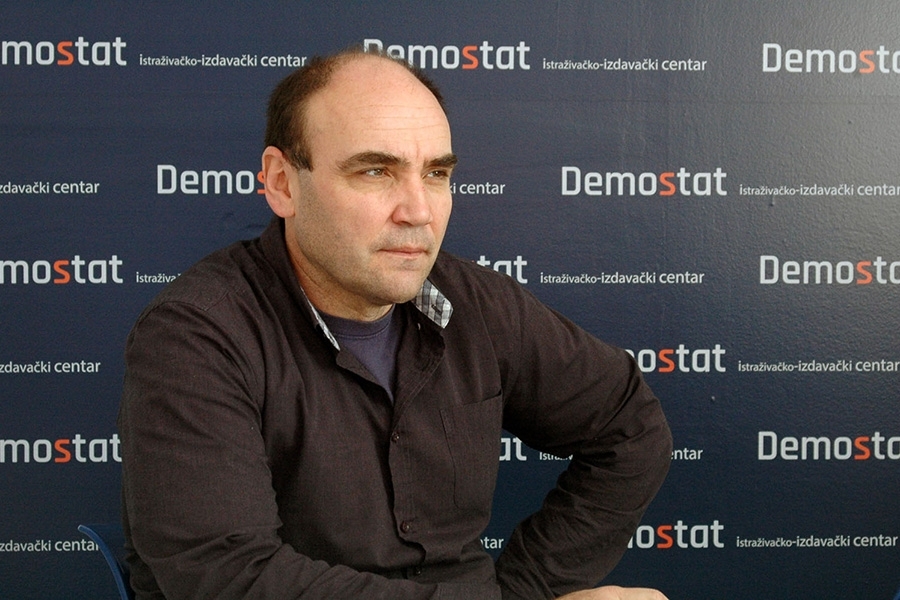Demostats Program Director, Zoran Panovic, stated that Serbian society has fundamental issues and is facing a major dilemma, akin to the situation in 1989. He also emphasized that the upcoming parliamentary elections will need to address these strategic questions – where this society is heading and what it wants.

Demostats Program Director, Zoran Panovic, stated that Serbian society has fundamental issues and is facing a major dilemma, akin to the situation in 1989. He also emphasized that the upcoming parliamentary elections will need to address these strategic questions – where this society is heading and what it wants.

Zoran Panovic, the Program Director of Demostat, stated that Serbian society is facing fundamental issues and a major dilemma, similar to the situation in 1989. He noted that the upcoming parliamentary elections will need to address these strategic questions about where society is heading and what it wants to become. He drew parallels with Poland, where the current parliamentary elections are seen as crucial for the country due to tensions and its international position.
Panovic mentioned that both the government and the opposition have reached a consensus regarding the elections – the opposition is seeking them, and the government is eagerly anticipating them.
When asked if he believes the elections will be held in December, Panovic pointed out that since 2012, the Serbian Progressive Party (SNS) has won elections that took place in the spring or early summer. In contrast, he noted that autumn or winter elections symbolically represent periods when the opposition in Serbia achieved significant victories, such as in 2000 or 1996.
He added that the period leading up to potential December elections would be a short timeframe for improving electoral conditions if the opposition were to demand them and the SNS agreed. This would also apply to any changes in electoral laws, such as raising the electoral threshold. Panovic emphasized that December would shorten all the deadlines.
Panovi? also noted that the opposition should be aware that it wont receive ideal electoral conditions from the current government, as Serbia has missed that opportunity long ago.
Panovi? suggests that the opposition must defeat Vu?i? even in unfavorable electoral conditions, but that doesnt mean they shouldnt strive to improve the electoral conditions, particularly regarding media coverage.
Panovic also points out that the opposition has chronic problems, including the fundamental issue of how to articulate the fact that there are more dissatisfied people in Serbia than those who vote for the opposition. He mentions issues with party organization and control of elections within the opposition.
He also notes that the international position of the government is not as bad as the opposition might hope, and they cannot expect decisive external support.
"This regime cannot be reformed, but it can make strategic concessions that are sufficient for the West," Panovic emphasizes.
He mentions that the parties in power are recognizable, but there are some parties that are formally part of the opposition but are actually aligned with the government.
Panovic also observes that its concerning that, despite significant dissatisfaction on the streets of Serbia, stronger opposition forces havent emerged in terms of organization. He explains that whenever the opposition is divided, it negatively affects their ratings, while any form of serious consolidation motivates opposition voters.
As he states, eventually, there will have to be some elections, and these issues will need to be addressed.
Panovi? suggests that the current government has a kind of revolutionary character, even though they didnt come to power through a revolution. They aim to rule absolutely everywhere, down to the local level, resembling a revolutionary force. This party has created a structure known as "capillary parties," which penetrates into the smallest social pores. This makes it difficult for the opposition to compete and control the entire electoral process because they are up against a powerful machine closely associated with the state. Panovi? explains that this is Vu?i?s statist concept, which he has developed to unprecedented levels.
Panovic points out that the opposition had Belgrade handed to them on a silver platter in the previous elections, but the problem is that a portion of the citizens voted for the opposition, which is still under the control of the government.
On the other hand, the opposition didnt have the strength to control elections in the major municipalities.
Panovic also states that the opposition needs to expand its support and reach out to the voter base of the Serbian Progressive Party (SNS).
Published on September 7th, 2023
In all societies there are issues that are rather being skipped. Certain...
The neoliberal path, started in 2001, has led to especially bad results in Serbi...
For centuries, the region was subsumed within the Ottoman and Hungarian Empires,...
"Serbia has returned to the systemic and anti-systemic position of the political...
In reality, Serbia is closer than ever to NATO. In the course of the last five y...